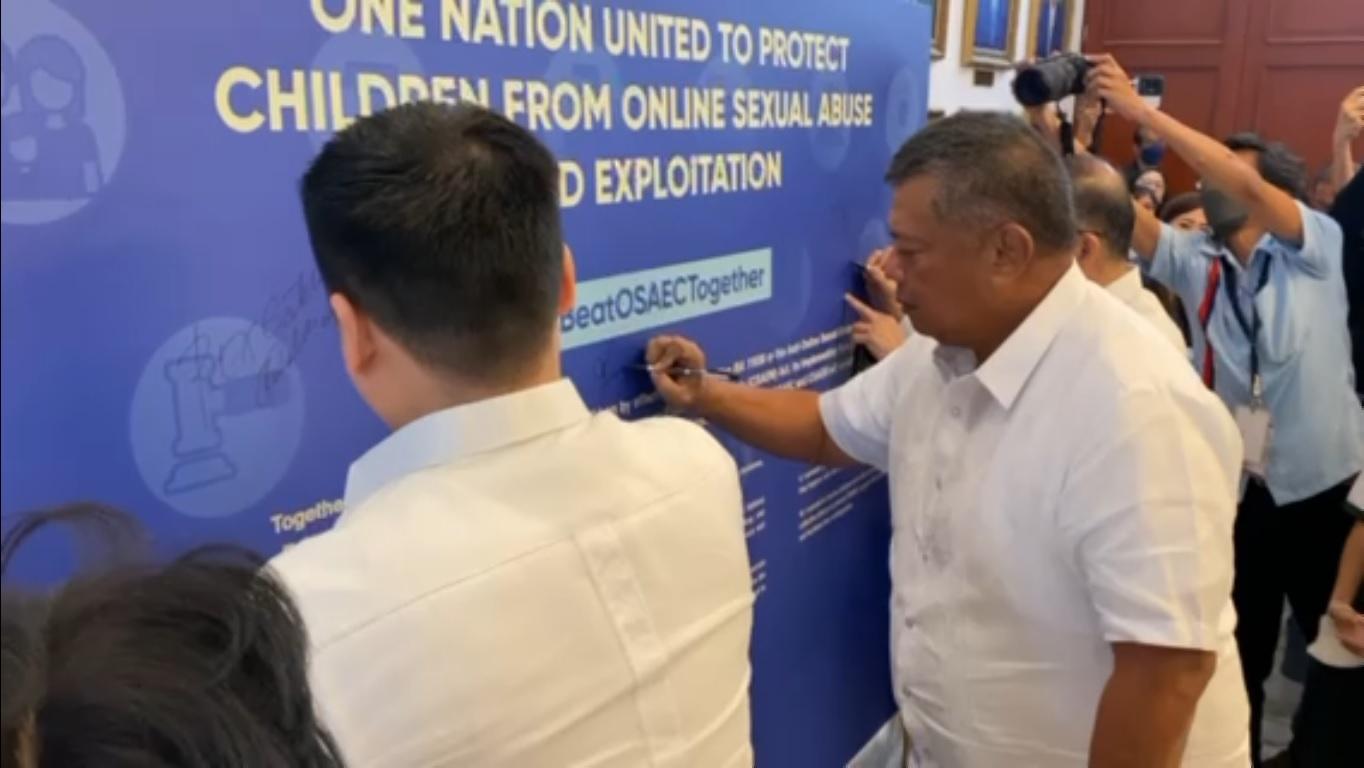IRR of anti-online sexual abuse, exploitation of children law signed

The Department of Justice (DOJ) and the Department of Social Welfare and Development (DSWD) on Thursday signed the implementing rules and regulations of the law protecting children from forms of sexual violence, abuse, and exploitation.
Justice Secretary Jesus Crispin Remulla said the IRR of Republic Act 11930 or the Anti-Online Sexual Abuse or Exploitation of Children (OSAEC) and Anti-Child Sexual Abuse or Exploitation Materials (CSAEM) Act defines the roles and responsibilities of concerned government agencies; outlines the procedures for reporting, investigation, and prosecution of cases; and establishes the mechanisms for the protection and rehabilitation of child victims.
“This law is a testament to our commitment to protecting the most vulnerable members of our society, our children, from the harms of online exploitation and abuse. We recognize that the rise of technology has opened up new avenues for predators to exploit children, and it is our duty to take proactive measures to safeguard their rights and welfare,” Remulla said during the ceremonial signing.
In 2020, the DOJ saw a 264.63% increase in reported OSAEC cases connected to the Philippines from March to May that year—the same period when restrictions were strict due to the COVID-19 pandemic.
DSWD Secretary Rex Gatchalian said the implications of the pandemic pushed the government to amend RA 9975 or the Anti-Child Pornography Act of 2009, which was later on rectified to RA 11930.
“We have seen the vulnerabilities and gaps of the law which have to be addressed and rectified in RA 11930. This milestone legislation now highlights the greater need to ensure that children are safe at all times wherever they are,” he said.
UNICEF also welcomed this development, saying that it marked an “important step in helping implement a law that will allow children to be safer online.”
“Consulting children in the formulation of the implementing rules and regulations for the law underscores progress, which we hope would continue to be the norm for all policies and legislations that affect children. Indeed, ‘nothing for them, without them.’ Children must be viewed as our partners towards social development,” UNICEF Philippines representative Oyunsaikhan Dendevnorov said in a statement.
UNICEF Philippines defined OSAEC as any act of exploitative nature carried out against any child with the use of an electronic device or any medium that can connect to the internet at any point of the abuse.
This can include manipulating or threatening a child into performing sexual acts in front of a webcam, grooming victims online, distributing, importing, exporting, or selling child sexual exploitation, and knowingly obtaining access to child sexual exploitation material online even if the abuse depicted in the material was carried out offline. — BM, GMA Integrated News




